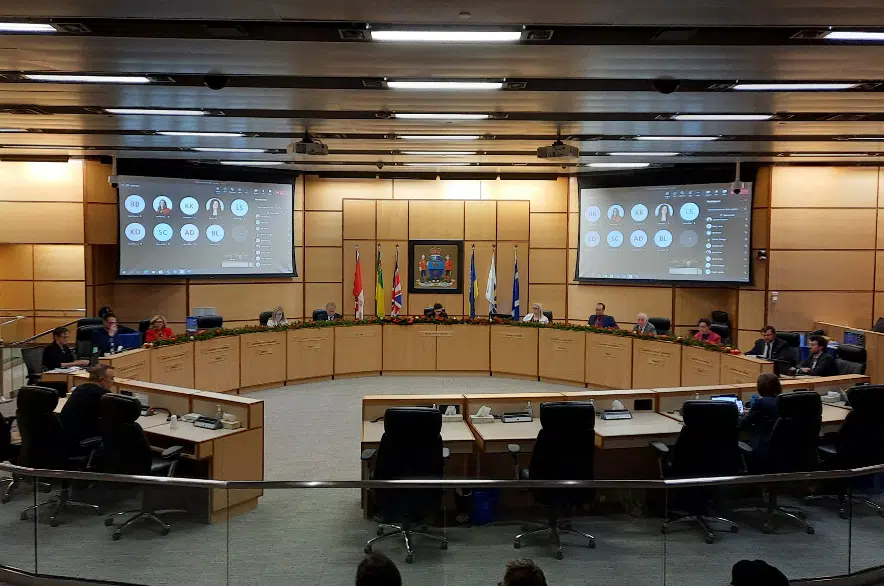When Regina city council wrapped up its meeting and gave final approval for the 2023 budget, Ian Betz-Wood sitting in the gallery gave comment that let councillors know he wasn’t happy with how things came out.
He’d been sitting in the gallery during the second day of debate when more than 40 people came up and told council how much they needed to do something to fix the homelessness issue in the city.
But, Betz-Wood said, how things shook out with the budget on Friday showed him about the council’s concerns and priorities.
“Concerns being dying on the street, but priorities being pickleball, pools, things like that,” said Betz-Wood.
He said council was worried and gave time to things like road renewal and bike lanes “while we have people dying on our streets right now in the freezing cold, and that’s just the concern, not the priority.”
There had been a push since June to include money for a plan to end homelessness in the city’s operating budget. But when it came time to debate that operating budget, procedural wrangling meant only one motion to start dealing with that issue was able to be put forward and it was defeated.
Betz-Wood said he didn’t want to say that democracy had been undermined, but it certainly didn’t feel like it was followed in this case.
Coun. Lori Bresciani was the one who moved the motion that reduced the mill rate increase but also made movement on ending homelessness difficult in budget talks. She said that was not the intention.
“It was really there to set the stage as to what do we really want out of this, and that was my intent,” said Bresciani, calling the budget process a balancing act.
“You can’t get too low. The city still has to operate, and yet is it affordable for most families?”
Coun. Andrew Stevens tried to amend Bresciani’s motion to have a dedicated mill rate increase go toward operating funding on a homelessness plan, but it was defeated. Several councillors were concerned that it removed the dedicated mill rate increase to go to recreation.
Stevens said later he supports recreation and he supported that mill rate increase when it was introduced.
“I felt this was an appropriate time to make a choice: Is it about housing people or is it about committing to the recreation mill rate and recreation amenities?” he said.
Stevens said council could have had both if the original motion had been worded a different way.
“I don’t believe it was deliberately set up to do that, the effect was the same,” said Stevens.
Both Stevens and Coun. Dan LeBlanc were disappointed more couldn’t be done on this issue in the budget.
LeBlanc said the delegations who spoke to council on Thursday had all the information they would have needed to know what the situation is.
“If that doesn’t shift hearts and minds, nothing will. And so I think (we’re) disappointed, and what I would say that means is it makes it profoundly unlikely that in the next budget cycle, with this makeup of councillors, we’ll seriously address the issue,” said LeBlanc.
“I think that was an historic moment, a historic chance and we blew it.”
Going forward, LeBlanc said he thinks the issue will see more community-driven, mutual aid. He acknowledges the city makes some important investments but this budget debate has shown it’s not supporting the community more in terms of shelter.
“I think the community is going to be, rightly, very distrustful (and) very hesitant to come back to us. And so they’re going to do what they’ve always done, which is look out for each other because their government is not looking out for them in a deep way, and that’s tough,” said LeBlanc.
Betz-Wood was one of those who helped operate Camp Hope last fall — the tent camp in a Heritage-area park which had upwards of 100 people living there until an emergency shelter opened for them. After it closed, he continued to be involved in the community.
“It’s very easy to see how any single person could be one paycheque, one accident, one health scare away from ending up in that situation as well,” said Betz-Wood.
“It should be a concern of everyone’s that we need to figure out ways to end this and at least begin the process of ending it. It’s not going to happen in one day overnight, it’s going to be a process that we need to do and we need to continue forward with it.”











